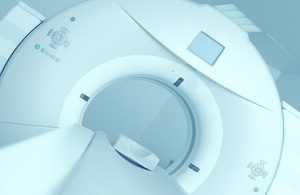Changes imminent to how ARSAC authorises research
Deadline for applications for new certificates for approved research involving the use of radioactive substances is 16 January 2018.

Scanner
The Administration of Radioactive Substances Advisory Committee (ARSAC) is urging researchers who administer radioactive substances to read up on imminent changes to the way that approvals are granted.
New regulations under The Ionising Radiation (Medical Exposure) Regulations 2018 (IR(ME)R), due to come into force on 6 February 2018, will replace the current process for the administration of radioactive substances with a new licensing system for practitioners and employers.
Public Health England will manage all applications for licences. Fees may be charged depending on the type of licence applications for employers and research approval. There will be no fees for practitioner licences.
ARSAC will still need to approve research studies involving the use of radioactive substances. There will be no change for research sponsors, such as a pharmaceutical company or university, who should continue to apply to ARSAC for authorisation.
Submit all applications for site-specific research certificates by 16 January 2018.
Nasreen Parkar, Scientific Adviser to ARSAC said:
When the new regulations come into force early next year, any valid research certificates will be considered to be a licence for both the practitioner and the employer at the identified installation. This will allow administrations of radioactive substances to continue in line with the research study protocol.
New or uncertificated research studies will require both the employer and practitioner to have an appropriate licence that includes the procedures within the research protocol.
Currently each research study requires a research ARSAC site certificate. Under the new system, this will no longer be the case.
Once an employer has a licence in place and there are licensed practitioners entitled under the employer’s procedures, administrations can be performed under the procedures detailed in any ARSAC-approved research study within the scope of the licences.
Installations that currently submit more than one research certificate application a month may need to apply early for employer licences and practitioner licences. There is nothing in the new regulations to stop employers or practitioners applying for licences any time after the new regulations come into force.
At present 80% of research studies involve the use of bone scans, MUGA scans, GFR studies and FDG tumour imaging. Once these and any other routine procedures have been included on employer and practitioner licenses, no further amendment is required to take part in a research. Researchers will need to notify practitioners about the research protocol and the employer will need to confirm that each installation has the capacity to perform the procedures.
Louise Fraser said:
It’s really important that research sponsors and sites understand how these changes will affect their local processes. We encourage everyone to look into what the changes will mean for them so that they are aware of what, if anything, they will need to do.
For further information please subscribe to our bulletin.